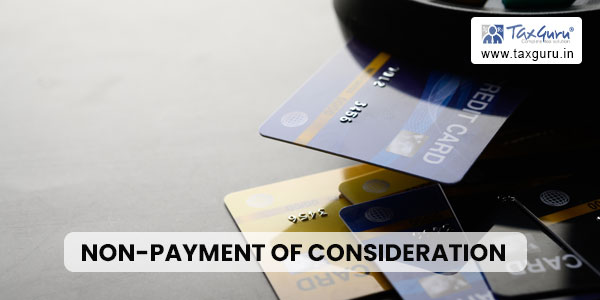As per Section 16(2)(d), ‘provided further that where recipient fails to pay to the supplier of goods, services or both, other than the supplies on which tax is payable on reverse charge basis, the amount towards the value of supply along with tax payable there on within a period of one hundred and eighty days from the date of issue of invoice by the supplier, an amount equal to the input tax credit availed by the recipient shall be added to his output tax liability, along with interest thereon, in such manner as may be prescribed: PROVIDED ALSO that the recipient shall be entitled to avail of the credit of input tax on payment made by him of the amount towards the value of supply of goods or services or both along with tax payable thereon’.
Now as per the finance bill 2023 there is further amendment provided that in violation of the above clause tax payer has to reverse the tax along with interest as per Section 50 (1) of CGST Act. Similarly, Rule 37(2) of CGST Rules provide where the said registered person subsequently makes the payment of the amount towards the value of such supply along with tax payable there on to the supplier there of, he shall be entitled to re- avail the input tax credit referred to in Sub Rule (1). The above two provisions bring more difficulties to do the business by the traders in the industry especially for middle class people. Moreover, tax payers having a long relationship in the business concern, same management, corporate, relatives doing the similar nature of business etc., this condition of 180 days make the things more miserable.
‘Consignment Agency’ also shall be hit badly by this Section 16(2) read with Rule 37(2) as a part of which purchaser (agent) shall remit the consideration to the principal as and when goods are sold out. In many situations the duration shall be more than six months. Hence in due course the concept of “consignment agency” shall get terminated or become obsolete. In the industry especially in the case of gold merchants, dealers in electric goods, white goods, textiles, pharmacy cum medicine segment etc., will be affected adversely due to the complication of the above stringent section. However, in the case of C & F agency it is not a problem since the IGST transactions between company to company only as a branch. If this law has implemented traders is compelled to arrange fund from local market with higher interest. Private finance institutions will get more interest and profit by this method when adopted by the small traders.
At the time of introduction of GST, Government also made an offer that during the initial period it would be more dealer friendly and no penalty shall be imposed for technical errors and mistakes. However now all dealers are getting several notice from GST authorities pointing out the issue of repayment of consideration beyond the period of 180 days. In addition to the above now as per Notification No. 13/2022 dated 5.7.2022, Government given extension for the time in connection with issuing the penalty order under section 73 (10), up to the period of September 2023, pertaining to the assessment year of 2017-18. This approach also makes things more complicated as far as the middle class and traders are concerned.

As part of the above issue I may suggest certain proposals to overcome the difficulties stated above.
(a) The period stipulated of 180 days can be enhanced to one year or till the period of filing the annual return of such respective year.
(b) During the initial period of GST as a part of sales promotion, as manufacturer and supplier are issuing credit note on account of special discount, additional discount etc., towards incentives for the purchase. It is termed as commercial credit note in the business industry provided if there is a pre-determined agreement on or before such sale there was no applicability of GST. Similar provision can be inserted as a remedy to avoid reversal of ITC while making the payment beyond the period of 180 days with the support of pre-determined agreement.
(c) While making such payments in instalments purchasing dealer can re avail such ITC and interest portion is being booked as an expense in their financials.
On a scrutiny of the above issue it is evident that Government is obtaining two benefits for the single transaction. The purchaser who purchased the goods or service or both after incurring GST also which is being rejected. Similarly GST authorities issue notice and makes assessment along with interest collected from such dealers again. In short there will be an amendment or relief in this Section and Rule by the proposal from GST council also to overcome this issue is required. As a purchaser tax payer initially four conditions were satisfied which has been now reached up to six conditions for availing such ITC. Now it is the duty of purchasing dealer to control and advice the supplier to the filing of returns in time. Government can also issue notice to this supplier and penalize them instead of tracing out the purchaser and demanding huge amount on the default committed by such suppliers.





